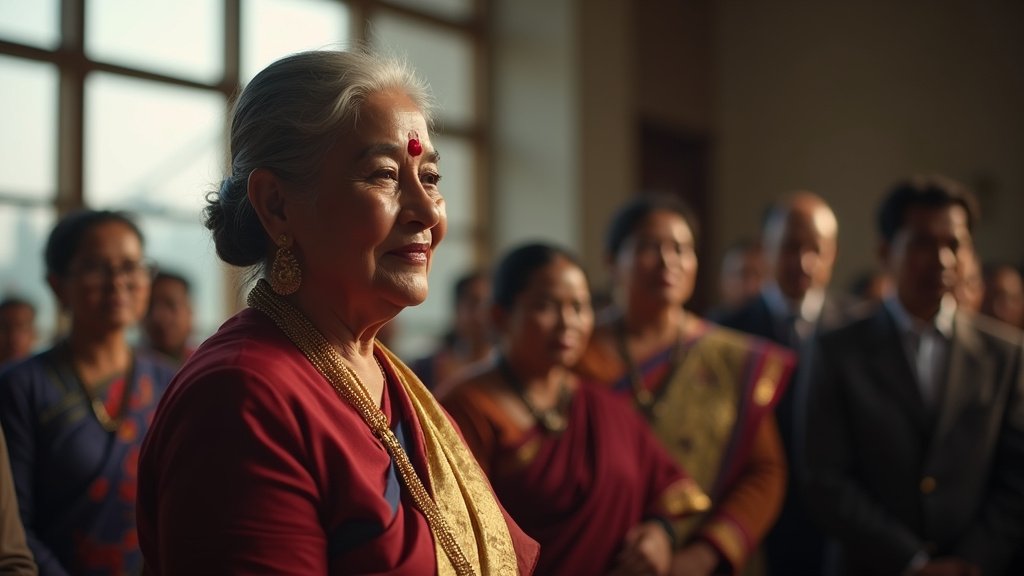Kathmandu, Nepal – In a historic moment for Nepal, former Chief Justice Sushila Karki was sworn in as the country’s first female interim Prime Minister on September 12, 2025. Her appointment marks a significant political shift following a tumultuous week of widespread, deadly protests that shook the nation and led to the resignation of former Prime Minister K.P. Sharma Oli.
The Spark of Protest and Political Crisis
The nation has been gripped by escalating unrest, largely driven by a youth-led movement, self-styled as ‘Gen Z’, protesting against deep-seated corruption, nepotism, and a controversial government ban on social media platforms. These demonstrations, which began with peaceful rallies, escalated dramatically after security forces opened fire on crowds, resulting in a tragic loss of life. Reports indicate that between 19 and over 50 people died, with hundreds more injured, marking one of the bloodiest periods in Nepal’s recent history. The violence also led to significant destruction, with government buildings, including parliament and the Supreme Court, being set ablaze, and thousands of prisoners escaping amid the chaos.
A Consensus Candidate Emerges
Amidst the political vacuum left by Prime Minister Oli’s resignation, and following intense negotiations involving President Ramchandra Paudel, the Nepal Army chief, and representatives of the Gen Z movement, Sushila Karki emerged as a unifying figure. The 73-year-old jurist, revered for her integrity and known for her no-nonsense approach to corruption during her tenure as Nepal’s first female Chief Justice (2016-2017), was widely backed by the protesting youth. Her selection was reportedly solidified through online discussions and polls coordinated by protest organizers. Her reputation as an anti-corruption crusader resonated strongly with a populace disillusioned by decades of political instability and corruption.
Transition to New Leadership and Elections
Following Karki’s appointment, President Ramchandra Paudel formally dissolved the Federal Parliament. In a move intended to pave the way for a new democratic mandate, fresh parliamentary elections have been scheduled for March 5, 2026. The interim government, led by Prime Minister Karki, is tasked with the critical responsibility of stabilizing the country, restoring law and order, and overseeing the preparations for these upcoming elections. The appointment is being closely watched as a potential turning point, offering hope for reform and a cleaner political landscape. This development is considered a significant piece of global news as it highlights the growing influence of youth activism in shaping political outcomes.
National and International Reactions
The appointment has been met with a mix of relief and anticipation. While many within the Gen Z movement expressed optimism, citing Karki’s incorruptible image, some raised concerns about potential political affiliations from her past judicial roles. However, endorsements from prominent figures like Kathmandu Mayor Balendra Shah, a rapper-turned-politician popular among the youth, signal broader support. Internationally, the United Nations agencies in Nepal welcomed Karki’s appointment, with UNICEF calling her leadership an inspiration for girls and women and emphasizing the importance of children’s rights. India, a close neighbor and development partner, also extended congratulations, expressing hope for peace and stability, and pledging continued cooperation. The swift transition, despite the violent backdrop, underscores the dynamic nature of current political trending events in the region.
Challenges Ahead
Prime Minister Karki faces immense challenges as she steps into this pivotal role. Her immediate priorities include forming a new cabinet, ensuring security, and fostering public trust, all while navigating the complex political currents of Nepal. The success of her interim government will largely depend on its ability to address the core grievances that fueled the recent upheaval and to conduct fair and transparent elections, setting Nepal on a path toward renewed stability and progress. This historic appointment is undoubtedly a major event in Nepal’s ongoing journey towards democratic renewal and a key development in contemporary news.




